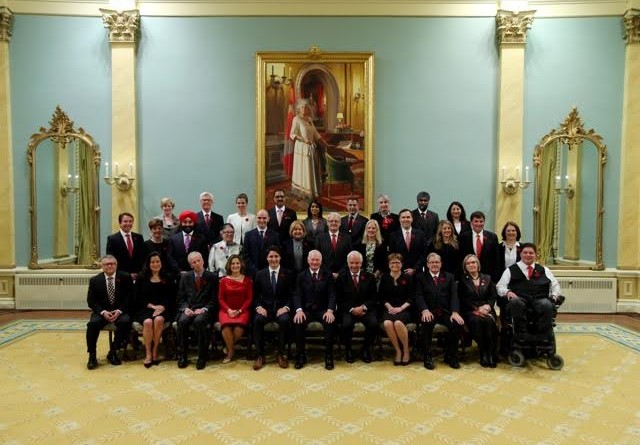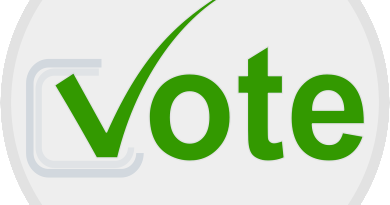Canada’s New Cabinet is Inexperienced, and That’s Great!
By: Matt Williams
As an election pledge Canada’s new Prime Minister, Justin Trudeau, vowed to appoint a gender balanced cabinet as part of his promise to deliver real change for Canadians. And true to his word, on 4th November, 2015 Prime Minster Trudeau appointed 15 women and 15 men to his cabinet, creating the first gender balanced cabinet in Canadian history. But gender balance isn’t the only attribute of this cabinet that is worthy of note. Trudeau’s first cabinet, amongst other things, is also ethnically diverse, young and inexperienced! And that’s great!
The youth of the cabinet is easy to see but it is perhaps the cabinet’s ethnic diversity that is more noteworthy. Not only are the new cabinet ministers drawn from a more representative cross section of Canada’s provinces than previous Ontario-centric cabinets have been, they are drawn from a range of ethnic and cultural backgrounds that truly reflect modern Canada. In selecting a diverse cohort to form his cabinet, the Trudeau regime has appointed three members of Canadian First Nations, the only government to appoint indigenous members to cabinet positions. But the diversity doesn’t stop there. The remainder of the cabinet is made of a mixture of Canadians born in Canada and Canadians that immigrated to Canada. And as for including those of different faiths the Canadian government has more Sikhs in cabinet than the Indian government.
Whilst this may appear as political maneuvering, it is far from that. In a politically correct world governments and public bodies often stand accused of appointing or promoting members of groups that are underrepresented to positions in order to address the imbalance. It is no secret that governments are trying to address the imbalance with public service hiring notices encouraging applicants to self-identify and government bodies such as the police or military making direct and overt attempts to recruit from specific ethnic or cultural groups (with good reason). But that isn’t the case here. When we look below the surface, we can see that each appointee is more than qualified to lead their respective portfolio and not just as a generalist or decision maker. They are more than just their gender or ethnicity.
To name but a few, we have a Paralympian, Carla Qualtrough, as the Minister for Sport and Persons with Disabilities. Bill Morneau, a successful business leader and pension reform advisor is the new Finance Minister and we have an astronaut, Marc Garneau, as Transportation Minister. As a signal to the strength of the field of candidates available Trudeau has been able to fill each post with a minister that appears to naturally fit the bill. Inuit, Hunter Tootoo is Minister of Fisheries, Oceans and the Canadian Coast Guard and The Ministry of Justice is to be led by Attorney General and former prosecutor in Vancouver’s gritty Eastside, Jody Wilson-Raybould. We also have a physician, Catherine McKenna as Minister of Health and Kent Hehr, a lawyer who has battled adversity after being paralyzed in a shooting incident, as the Minister of Veterans’ Affairs – a role that previous incumbents attracted significant criticism for displaying a lack of empathy for Canada’s wounded and struggling veterans. Rounding off the cabinet with a broad range of well qualified candidates, we have a Minister of National Defence, Harjit Sajan, OMM, MSM, CD, who is former police officer, soldier, the first Sikh to command a Canadian military unit, and one who served with distinction on several tours in Afghanistan and elsewhere.
While its’ clear to see that each of the candidates has the necessary background knowledge to contribute in their appointed portfolio, there is one characteristic that many commentators may identify as being a negative. And that’s their lack of experience, which is noticeable with Trudeau himself being only a second term politician. Of course there are a number of more experienced politicians amongst them and Trudeau uses tenure where tenure is important, such is in Foreign Affairs with Stephan Dion. But 18 of the new cabinet ministers are not just new cabinet ministers, they are new Members of Parliament and politics is a complicated and nuanced world. The corridors of Ottawa can be cruel and unforgiving and at times can grind up even the toughest and most capable. Being a physician is one thing but overseeing the entire nation’s health policy is something else and commanding an Army unit in Canada’s Primary reserve is not the same as representing the entire Canadian Forces at the highest level when they have been under appreciated and under invested in for decades. However, it is their lack of political experience that is their best characteristic, making each of them more qualified rather than less qualified.
Canadians had an experienced government but in the election they chose not to renew their mandate. As often happens, governments and politicians can become detached from the electorate, losing the ability to empathize and failing to lead in the people’s best interests. New governments always have the benefit of being better connected to the electorate than the outgoing government. Time spent in opposition gives them the opportunity to engage with voters and to get to know them and this is apparent in Trudeau’s human approach which is carried through to our newly elected and newly appointed cabinet ministers. And adding strength to their proximity to the electorate is the fact that they are not encumbered by the complications and nuances of Ottawa. Time and again posters on LinkedIn will tell us that the most expensive phrase in business is ‘We’ve always done it that way.’ Well the same should be said for government.
Over recent decades governments and business alike have valued not just experience but specific experience. Employers don’t just want experience; they want experience on specific equipment, in a specific industry or in a specific market and government has become the same. One has to learn to navigate the corridors of power, to understand the committees and complex dynamics that go with them before they can be taken seriously. And that’s fine if you want to keep on getting the same result. If your business is growing at 1½% or the electorate are happy with the status quo, then keep on keeping on.
But that wasn’t the case in Canada. Trudeau and the Liberals won the election on the promise of delivering real change and the only way to deliver it is to do something different. If you really want change, then experience can actually hold you back. In appointing 18 new but well qualified politicians to cabinet positions Trudeau has done that but he didn’t simply appoint a group of rookies. He appointed a Veterans’ Affairs Minister who hadn’t just battled adversity, but who was also a community leader and was free of many of the influences of Ottawa. And he appointed a Minister of Finance who is an industry leader with the ability make money and reform pension plans. And there is a wider lesson here, not just for government but for business too. It’s hire for ability because the experience will come and it will change everything.
Canada’s new cabinet is inexperienced, and that’s great!



making statement like ” Canadian government has more Sikhs in cabinet than the Indian government” show a lack of understand.
Its like saying that Surrey BC has more Sikh MP/MLA than Vancouver BC.
Yah there are more Sikhs in Surrey than Vancouver, hence the reason.
Similarly, India has 29 states a country of different faiths, has 80% Hindu’s and 2 % Sikhs.
Sikhs live mostly in Punjab hence the cabinet is of that religion. There are other religions that equally have majority in other states that are part of the cabinet in majority.